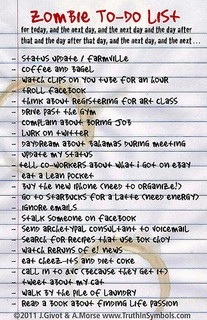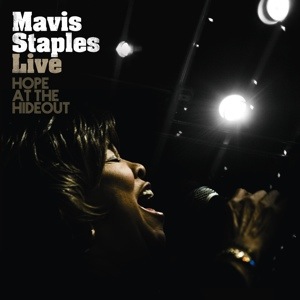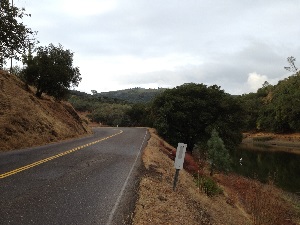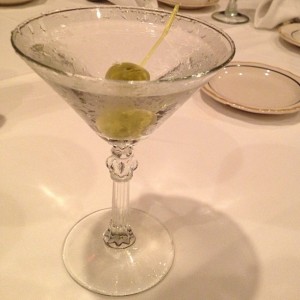 There’s this Steve Wynn song called “Bruises” that’s stuck with me ever since I heard him play it at South by Southwest in 2006. The first verse goes like this:
There’s this Steve Wynn song called “Bruises” that’s stuck with me ever since I heard him play it at South by Southwest in 2006. The first verse goes like this:
Bloodshot, tired and torn apart
I’m at my best when I can barely start
I fall down easy but I get up slow
I really, really hope that the bruises don’t show
The reason it sticks with me is a lyric in the bridge…
If I came to you late at night
Would you answer to my call
I can’t do anything to make it all right
This is how you learn to fall
“This is how you learn to fall.”
There are so many things I love about that line. Summed up, it’s the acknowledgement that life is not without pain and failure and one should learn how to manage it so permanent damage does not occur. You are not entitled to easy living but there’s plenty to be learned from experience and one can learn to wear it well. Maybe that’s not how Wynn intended it but that’s what it says to me.
I’ve thought about that line an infinite number of times since we had Abigail.
—
There are a lot of things they don’t tell you about being a dad. The list is almost too long to bother with but off the top of my head there’s “Changing diapers never gets more tolerable (just easier)” and “You might give some jackass the benefit of the doubt because you suddenly remember he’s someone’s kid.”
The big one that no one tells you because it seems too obvious – but it’s the one that terrifies me – is “barring catastrophe you never stop being a dad.” That one gut-punches me out of nowhere when I’m lying in bed at night.
I used to think the early months of child-rearing – those days of colic and reflux and walking around the dining room table while doing lunges with Abigail in my arms because it’s the only way she’ll stop crying – were insurmountable. But they passed. Then comes talking. And walking. First birthday. Sentences. Second birthday. Paragraphs. Intent. Agenda. Yet each stage is just a minor evolution from the one prior so they’re easy to get your head around.
Then I start to jump a few years ahead and it all goes off the rails again. There’s always so much more ahead of you and the vast expanse of life gets you to thinking of events both reasonable and ridiculous.
How do I react when she starts liking someone in her class? Not just “like ’em” but “like em, like ’em.”
What happens when someone bullies her? Do I kick that kid’s teeth in or his parents’?
What if we’re on a cruise ship and she falls over the side? *
Someone is going to break her heart. Wait…what if that person is me? What if I disappoint her in some huge, therapy-inducing way?
My God, she’s going to leave home one day and be on her own.
You’d think the idea of parenthood as an evolving, decades-long undertaking would have occurred to me before. Like when Erin and I discussed having kids in the first place, perhaps. I submit to you that you can know things intellectually and be fine with them and then encounter their emotional reality and find yourself completely unprepared.
A better summary of parenthood I have likely never written.
The other thing no one tells you about being a dad that crops up all the time for me is how it breaks your heart a little when you’re not around your kid. I used to think the idea of being in love with your kid was an exaggeration. Nope. There’s no other way to describe that sense of loss you feel in the middle of the day when you realize you’re working on a project you enjoy yet it pales in comparison to being at the park with your kid. You just want to spend as much time as possible with your favorite person and that person is not here right now and so…blagh. I used to think I felt this way because my job was making me miserable. It was, and certainly contributed to the feeling but I’ve been at a job I really like for the last two months and still have occasional blagh moments.
Feeling blagh is helpful. It gives you perspective into what really matters and a clue as to how much time to spend worrying about something, regretting a project or bemoaning anything that didn’t go according to plan.
This is how you learn to fall.
—
Remember the castle boat? Abigail used to struggle with climbing it. She eventually figured it out. We also have this glider (or what non-parents just call “a chair”) she spent significant time learning to climb into and climb out of. I figured it was inevitable she would start climbing on things what with humanity’s tendency toward locomotion so it was probably a good idea for her to learn to do so safely and even learn to fall once in a while. So I taught her how to back out of a chair when she was around a year. She applied this thinking to the castle boat. Sometimes she fell. And she cried. But she got used to it. And she learned to distinguish between a “whoops” fall and a real fall. And cried less.
Then came the stairs.
Our stairs are steep. We live in a classic Chicago bungalow and unless you’re in pretty decent shape the steps will remind you of your calf muscles’ existence and how tight your hamstrings are.
One day Abigail decided to climb the stairs. Again, she was barely a year old. Part of me wanted to stop her but the other part of me thought “Well, she has to learn sometime.”
It probably goes without saying that my wife was not home at the time.
She climbed all the way up. Fourteen steps. By herself. I followed immediately behind her, centimeters between her back and my hands, ready to catch her if she lost balance. She didn’t. I was so proud. Several months later she learned to climb down them. Since then, she’s developed a love of playing on the stairs. We’re always with her, except in moments when she’s snuck by us. She’s occasionally lost her balance and hurt herself but hasn’t ever done permanent damage.
From there it was off to the park, climbing the wrong way up the slide. Or the right way up a ladder. Ascending a climbing wall. (No, seriously, there’s a kiddie climbing wall. Surprised me, too.) Occasionally missing a step and bumping her head but doing it all the same.
Then there was climbing onto the bed and accidentally falling off but immediately yelling out “I’m OK!” She says that a lot when it seems like we’ve roughhoused too hard, as much to reassure herself as me.
It’s all been an evolution. Parenting is a long process, but apparently there aren’t so many big leaps forward that it’s unfamiliar.
—
Eventually, Abigail is going to get bullied. And like someone. She will get her heart broken. And leave home.
By then she will have learned to fall hard and get up slow.
So will her dad.
Probably not going to take her on a cruise ships anytime soon though.
* Since Abigail was born, our family has never been on a cruise together. Erin and I went on a cruise once and didn’t end up overboard and that was back in 2010 because of Oprah which is a long story but what I’m trying to say here is this possibility does not at all relate to our current circumstances and is therefore completely irrational but popped in my head once and now it occasionally revisits me…like hemorrhoids.
 Five-star hotels in Honk Kong, have – up until recently – served coffee from berries that have been eaten, partially digested then excreted by animals called civets, which resemble weasels. The coffee beans themselves are not fully digested by the civets, but their digestive juices apparently give the beans a “smooth, chocolatey, earth flavor” (I have seen Caddyshack and I am pretty sure that is not “chocolate” but OK.)
Five-star hotels in Honk Kong, have – up until recently – served coffee from berries that have been eaten, partially digested then excreted by animals called civets, which resemble weasels. The coffee beans themselves are not fully digested by the civets, but their digestive juices apparently give the beans a “smooth, chocolatey, earth flavor” (I have seen Caddyshack and I am pretty sure that is not “chocolate” but OK.) 





